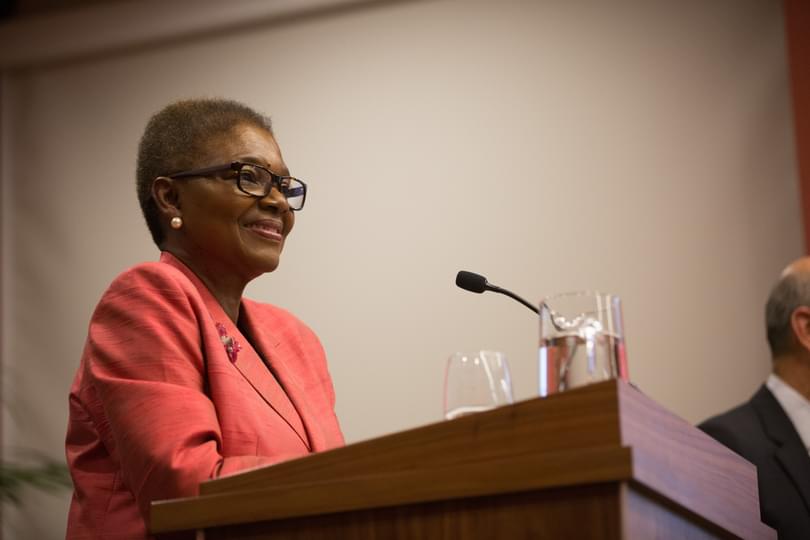
In a lecture at the Oxford Martin School on 9 May, Baroness Valerie Amos called for a UN that is more flexible, innovative and suited to dealing with the challenges faced by humanity today.
Baroness Amos, who served as Under-Secretary-General for Humanitarian Affairs and Emergency Relief Coordinator from 2010 to 2015, spoke on the theme 'Governance of 21st century challenges: is the UN fit for purpose?', and said the world now was very different from that following the Second World War, when the organisation was established.
Reflecting on the challenges of working in a large, complex organisation of 85,000 people, dealing with myriad problems around the world, she said: “One of the things that was most difficult was holding countries to account. Accountability mechanisms are missing and states act with total impunity. The second thing that was really difficult was competition between parts of the UN, particularly with contradictory mandates.”
Baroness Amos called for more resources for conflict prevention and mediation, and for less to be spent on prolonged peacekeeping operations, saying: “Where is the longer term vision that puts conflict prevention at the heart of UN action? Where conflicts are protracted and intractable there are huge costs to human development.”
Setting out her views on the changes required, she said she would strengthen accountability mechanisms, “give real teeth to the R2P (Responsibility to Protect)”, get rid of overlaps and competition within the system and make better use of the “tomes” of data at its disposal.
She said that although reform was needed, it was unlikely that a future Secretary-General would be elected with a radical reform agenda, due to "vested interests" in preserving the status quo.
But Baroness Amos said there was much about the organisation that was positive, including huge strides that had been made in fighting disease and poverty, the protection of human rights, and the commitment from staff to the UN’s beliefs and to helping others.
Speaking before taking the stage, Baroness Amos, who was last year appointed Director of SOAS, University of London, said she thought the next UN Secretary-General could be a woman. “I think it’s very important to think about all the skills and qualities you need and there are certainly women out there who would match the criteria. It would make a difference, and the symbolism of the first woman Secretary-General would be very important.”
Asked about her role at SOAS, she said she was drawn to the organisation by its century of experience and expertise working in Asia, Africa and the Middle East.
“These are regions of the world that face a huge number of challenges right now,” she said. “One of the things that that concerns me about public policy is that it’s not necessarily sufficiently informed by data and analysis, and by history and an understanding of countries and cultures.
"These are areas in which SOAS has a huge amount of expertise and why I wanted to be there.”